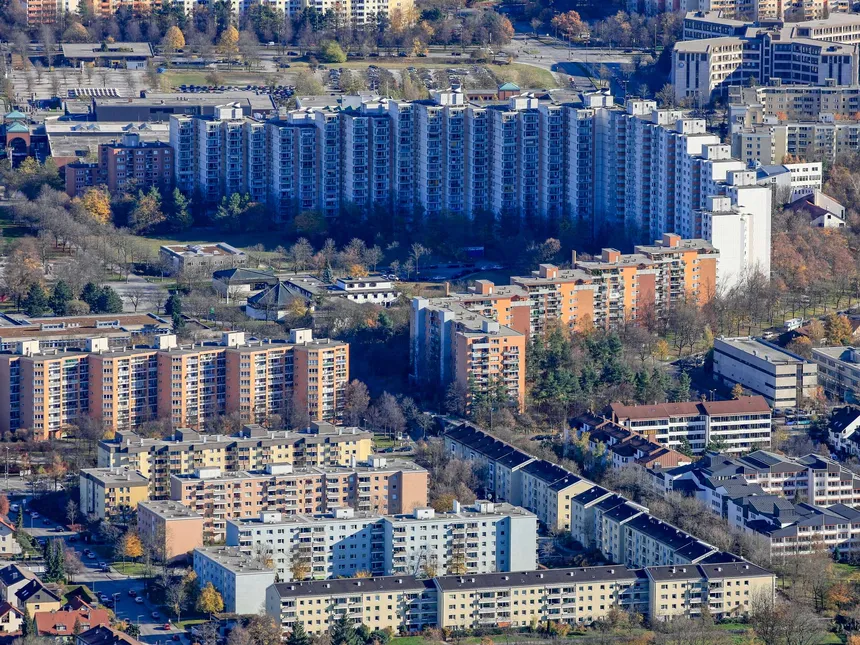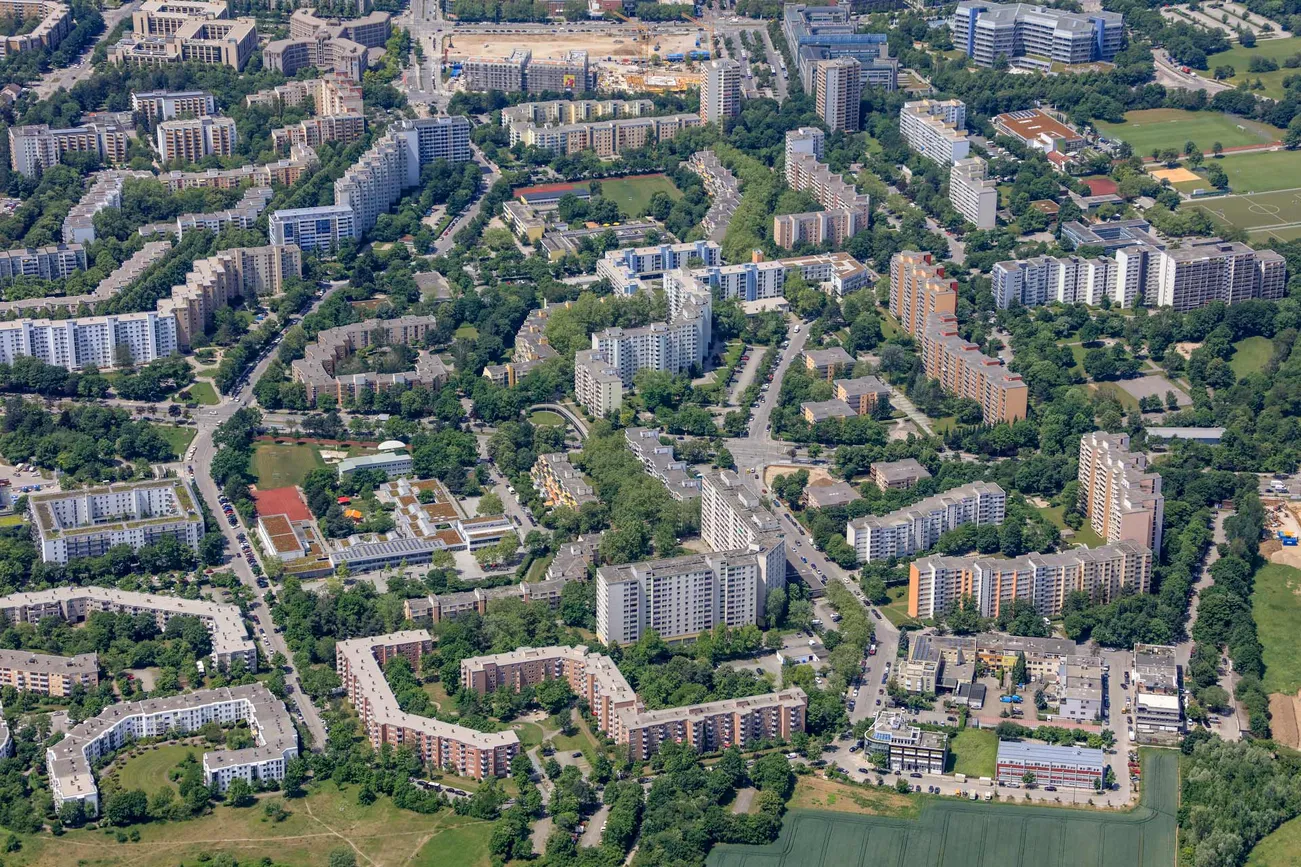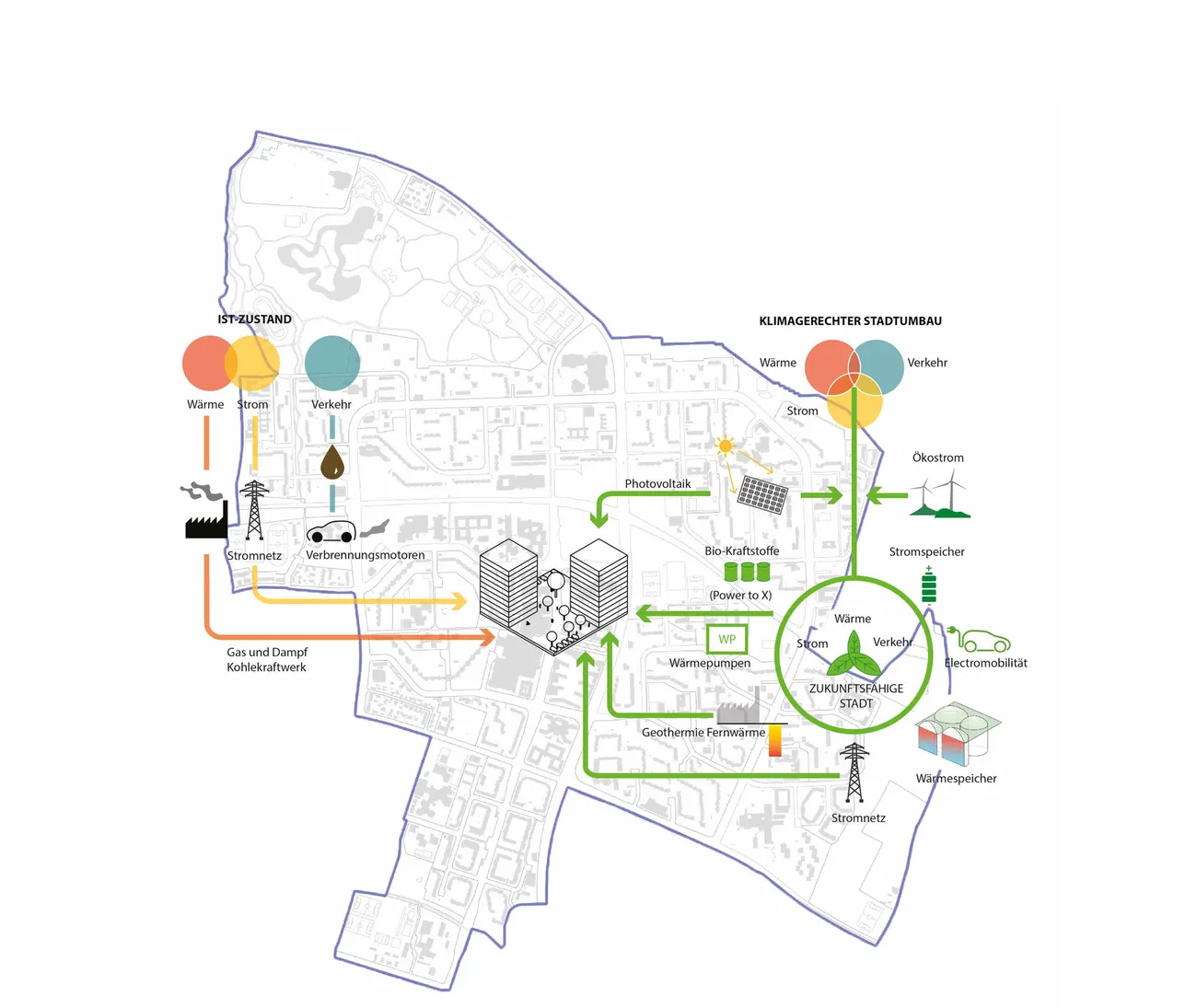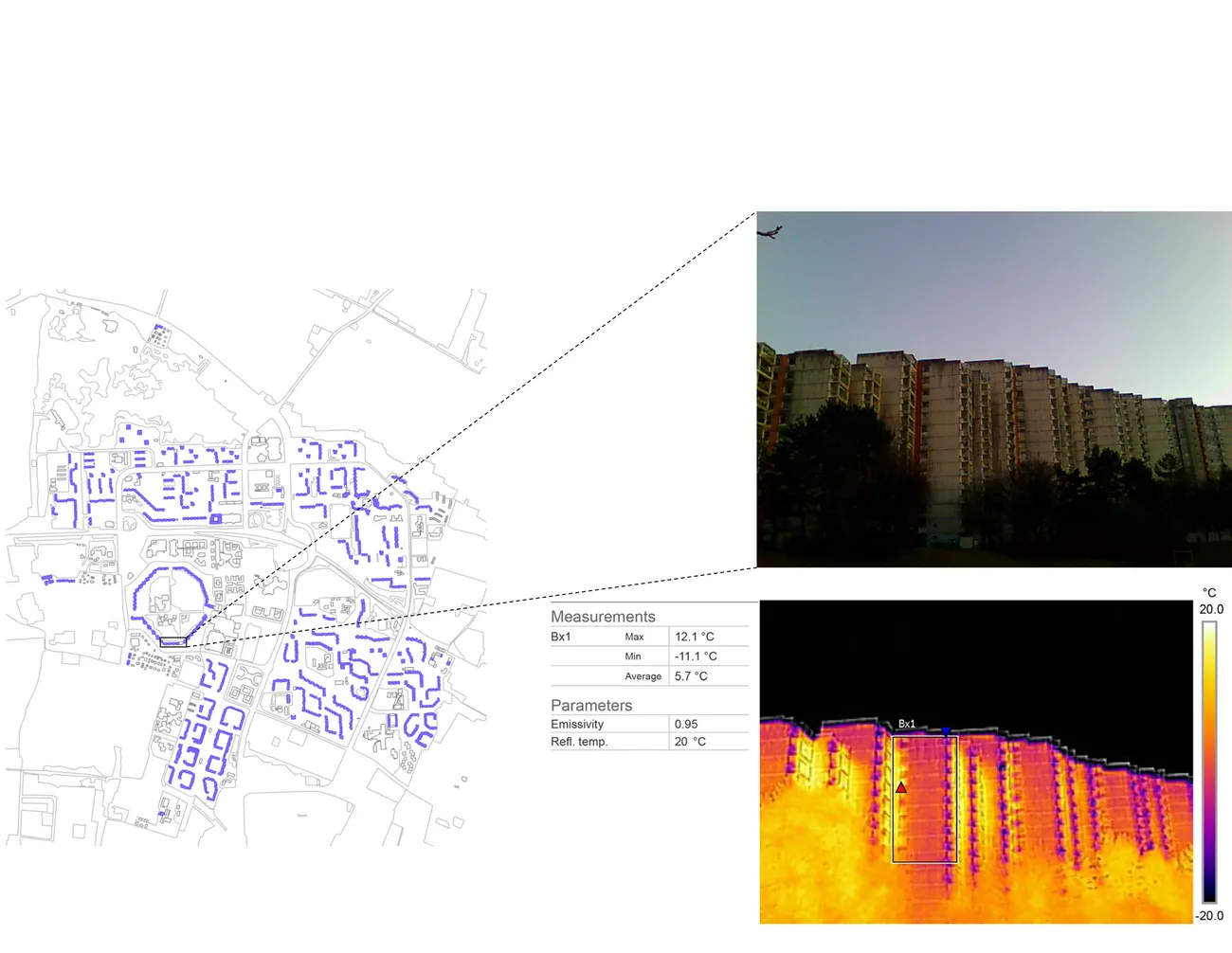Urban District Development Neuperlach, Munich, Germany

The Munich urban extension Neuperlach was developed from the late 1960s to the 1980s. The planning office ADEPT, Copenhagen, together with Luchterhandt office, Hamburg, and Transsolar office, Munich, prepared an Integrated Urban District Development Concept Neuperlach for the implementation of the redevelopment as well as an Integrated Action Area Concept. Neuperlach is to be made "Fit for the Future".
The climate-friendly development and redevelopment of the district is – in addition to other redevelopment goals – an essential aspect of the integrated development of the district. The project is taking on the challenge to develop a concept for this. Fossil fuels are still the main source of energy for mobility, electricity and heat generation.
Neuperlach already has a well-developed district heating network. The goal is to continue to use this energy supply structure and as part of the redevelopment, to supply the district predominantly with renewable energy from deep geothermal energy by 2035. This will require further strategies such as photovoltaic installations on roofs, management of energy consumption and storage systems for electricity and heat, while integrating e-mobility hubs to create synergies when electricity, heating and transport are then supplied from renewable energy sources.
In addition, adjustments will be made to increase resilience to summer heat by expanding the green grid. The new green infrastructure should also include water management systems and bike lanes to improve comfort and mobility in outdoor areas for pedestrians and cyclists.
The energy efficiency guidelines and measures are intended to bring Neuperlach close to the goal of climate neutrality, while preserving the district's characteristic diversity, nature and architecture. Further information at stadtsanierung-muenchen.de.
The preparatory studies of Neuperlach were funded with urban development funds from the federal-state program "Growth and Sustainable Renewal – Designing Livable Neighborhoods" and co-financed by the City of Munich.


